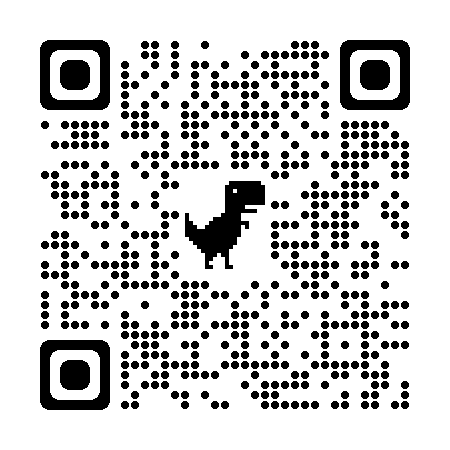when science meets nature
Public studies on ingredientsAnimal Study, Bacterial, Human In Vitro, Human Study, In Vitro Study.
TURKEY TAILS
Trametes versicolor - CORIOLUS VERSICOLOR
Research & Studies
Medicinal Mushrooms: Health Professional Version
PDQ Integrative, Alternative, and Complementary Therapies Editorial BoardIn: PDQ Cancer Information Summaries [Internet]. Bethesda (MD): National Cancer Institute (US); 2002.2022 Jun 7.

Excerpt
This PDQ cancer information summary for health professionals provides comprehensive, peer-reviewed, evidence-based information about the use of medicinal mushrooms in the treatment of people with cancer. It is intended as a resource to inform and assist clinicians in the care of their patients. It does not provide formal guidelines or recommendations for making health care decisions.
This summary is reviewed regularly and updated as necessary by the PDQ Integrative, Alternative, and Complementary Therapies Editorial Board, which is editorially independent of the National Cancer Institute (NCI). The summary reflects an independent review of the literature and does not represent a policy statement of NCI or the National Institutes of Health (NIH).
Keywords: Coriolus versicolor; Ganoderma; Lingzhi; mushrooms; Reishi; Trametes versicolor; Turkey Tail.
Trametes versicolor (Turkey Tail Mushrooms) and the Treatment of Breast Cancer
Keywords: Trametes versicolor; beta-glucans; breast cancer; turkey tail mushrooms.
The mycelium of the Trametes versicolor (Turkey tail) mushroom and its fermented substrate each show potent and complementary immune activating properties in vitro.
Abstract
Background: The medicinal mushroom Trametes versicolor (Tv, Turkey Tail) is often prepared for consumption as a powder from the fungal mycelium and the fermented substrate on which it grew. The goal for this study was to evaluate the immune-modulating properties of the mycelium versus the fermented substrate, to document whether an important part of the immune-activating effects resides in the metabolically fermented substrate.
Methods: Tv mycelium was cultured on rice flour. The mycelium and the fermented substrate were mechanically separated, dried, and milled. The initial substrate served as a control. Aqueous fractions were extracted and passed through 0.22-μm filters. The remaining solids were passed through homogenization spin columns without filtration. The aqueous and solid fractions of the initial substrate (IS), the fermented substrate (FS), and the Trametes versicolor mycelium (TvM) were tested for immune-activating and modulating activities on human peripheral blood mononuclear cell cultures, to examine expression of the CD69 activation marker on lymphocytes versus monocytes, and on the T, NKT, and NK lymphocyte subsets. Culture supernatants were tested for cytokines using Luminex arrays.
Results: Both aqueous and solid fractions of TvM triggered robust induction of CD69 on lymphocytes and monocytes, whereas FS only triggered minor induction of CD69, and IS had no activating effect. The aqueous extract of TvM had stronger activating effects than the solid fraction. In contrast, the solid fraction of IS triggered a reduction in CD69, below levels on untreated cells. Both aqueous and solid fractions of FS triggered large and dose-dependent increases in immune-activating pro-inflammatory cytokines (IL-2, IL-6), anti-inflammatory cytokines Interleukin-1 receptor antagonist (IL-1ra) and Interleukin-10 (IL-10), anti-viral cytokines interferon-gamma (IFN-γ) and Macrophage Inflammatory Protein-alpha (MIP-1α), as well as Granulocyte-Colony Stimulating Factor (G-CSF) and Interleukin-8 (IL-8). TvM triggered more modest cytokine increases. The aqueous extract of IS showed no effects, whereas the solid fraction showed modest effects on induction of cytokines and growth factors.
Conclusion: The results demonstrated that the immune-activating bioactivity of a mycelial-based medicinal mushroom preparation is a combination of the mycelium itself (including insoluble beta-glucans, and also water-soluble components), and the highly bioactive, metabolically fermented substrate, not present in the initial substrate.
Keywords: Anti-inflammatory; CD69; Cytokines; Immune modulation.

PubMed
PubMed comprises more than 28 million citations for biomedical literature from MEDLINE, life science journals, and online books.
In PubMed
There are 1144 on Agaricus blazei.






HEALTH BENEFITS OF MEDICINAL MUSHROOMS
While much attention in recent years has focused on various immunological and anti-cancer properties of certain mushrooms, they also offer other potentially important health benefits, including antioxidants, anti-hypertensive and cholesterol-lowering properties, liver protection, as well as anti-inflammatory, anti-diabetic, anti-viral and anti-microbial properties. These properties have attracted the interest of many pharmaceutical companies, which are viewing the medicinal mushroom as a rich source of innovative biomedical molecules.
